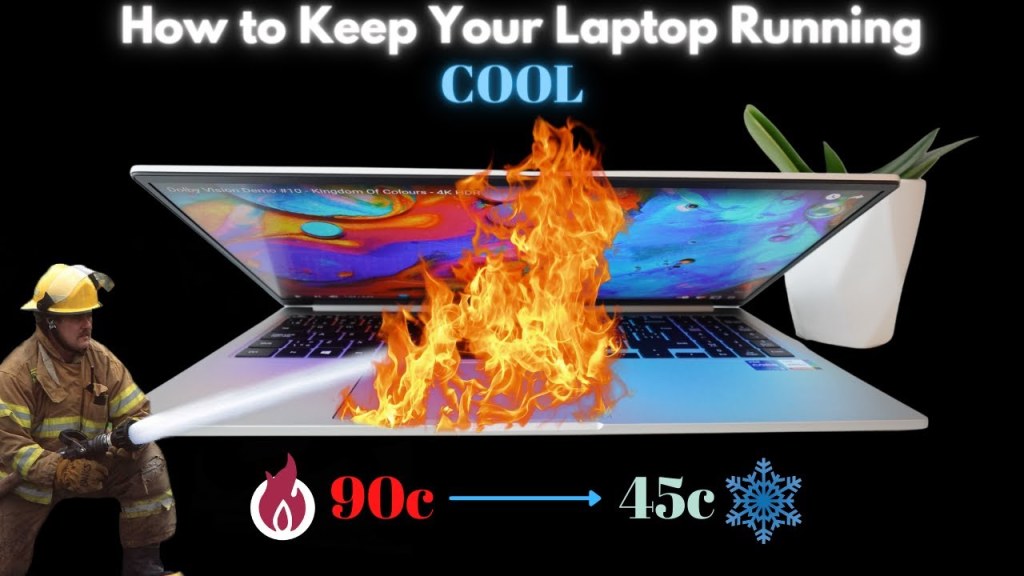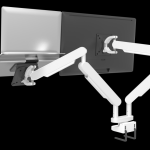Ultimate Laptop Overheating Tips: Keep Your Device Cool And Efficient
Tips to Prevent Laptop Overheating and Improve Performance
Greetings, Readers! In today’s digital age, laptops have become an essential part of our lives. Whether you use it for work, entertainment, or staying connected with friends and family, a well-functioning laptop is crucial. However, one common issue that many laptop users face is overheating. Excessive heat can not only affect the performance of your device but also damage its internal components. In this article, we will provide you with valuable tips to prevent laptop overheating and improve its overall performance. Let’s dive in!
Introduction
Overheating is a common problem that most laptop users encounter at some point. When a laptop overheats, it can cause various issues such as sudden shutdowns, performance lag, and even permanent damage to the hardware. Several factors contribute to laptop overheating, including inadequate ventilation, heavy usage, excessive dust accumulation, and outdated software. Understanding the causes and implementing preventive measures can help extend the lifespan of your laptop and ensure optimal performance. In this article, we will discuss effective tips to keep your laptop cool and prevent overheating issues.
1 Picture Gallery: Ultimate Laptop Overheating Tips: Keep Your Device Cool And Efficient

What Causes Laptop Overheating?
Excessive heat buildup in laptops can occur due to various reasons, including:
Blocked air vents or inadequate ventilation
Dust accumulation on internal components
Heavy usage of processor-intensive applications
High ambient temperature
Outdated system software or drivers
Faulty cooling system
Hardware issues such as malfunctioning fans or heat sinks
Who is Affected by Laptop Overheating?

Image Source: ytimg.com
Laptop overheating can affect anyone who uses a laptop regularly, regardless of their profession or usage patterns. Whether you are a student, a professional, or a casual user, it is essential to be aware of the potential risks and take necessary precautions to prevent overheating. By following the tips mentioned in this article, you can ensure that your laptop remains cool and performs optimally, regardless of your usage requirements.
When Does Laptop Overheating Occur?
Laptop overheating can occur at any time, but it is more likely to happen when:
The laptop is placed on soft surfaces such as beds or couches, restricting airflow.
The laptop is used for extended periods without proper breaks.
Resource-intensive tasks such as gaming, video editing, or running virtual machines are performed.
The laptop’s cooling system is malfunctioning or blocked due to dust accumulation.
Where Does Laptop Overheating Happen?
Laptop overheating can happen anywhere, whether you are using your laptop at home, in the office, or on the go. However, certain environmental factors can contribute to overheating, such as:
High ambient temperatures in poorly ventilated areas
Using a laptop in direct sunlight or near a heat source
Operating the laptop in dusty or dirty environments
Why is Laptop Overheating a Concern?
Laptop overheating is a significant concern for several reasons:
Reduced Performance: Excessive heat can cause your laptop to slow down, freeze, or crash, hindering your productivity.
Hardware Damage: Overheating can lead to permanent damage to internal components such as the CPU, GPU, and motherboard.
Data Loss: Sudden shutdowns caused by overheating can result in data loss if unsaved work is not backed up.
Shortened Lifespan: Continuous overheating can significantly reduce the lifespan of your laptop, leading to frequent repairs or the need for a new device.
How to Prevent Laptop Overheating?
Preventing laptop overheating requires a combination of hardware and software measures. Here are some effective tips to keep your laptop cool:
Ensure Adequate Ventilation: Avoid blocking the air vents and use your laptop on a flat, hard surface that allows proper airflow.
Clean Dust Regularly: Periodically clean the air vents, fan, and internal components to remove dust and debris that can hinder cooling.
Use Cooling Pads or Cooling Stands: Invest in a cooling pad or stand that provides additional airflow and helps dissipate heat.
Optimize Power Settings: Adjusting the power settings to a balanced mode can help regulate the CPU’s performance and reduce heat generation.
Update System Software and Drivers: Keeping your operating system, drivers, and firmware up to date can improve compatibility and resolve known issues that contribute to overheating.
Avoid Overburdening the Laptop: Limit the number of resource-intensive applications running simultaneously and close unnecessary background processes to reduce CPU load.
Consider Undervolting or Underclocking: Advanced users can explore undervolting or underclocking techniques to reduce heat generation while sacrificing minimal performance.
Advantages and Disadvantages of Laptop Overheating Tips
Like any other solution, laptop overheating tips have their advantages and disadvantages. Let’s explore them:
Advantages:
Improved Performance: Implementing overheating tips can enhance your laptop’s performance by preventing thermal throttling and maintaining optimum temperatures.
Extended Lifespan: By keeping your laptop cool, you can increase its lifespan and avoid costly repairs or the need for a replacement.
Energy Efficiency: Overheating can cause your laptop’s fans to work harder, leading to increased power consumption. Preventing overheating can help save energy.
Disadvantages:
Time and Effort: Regular cleaning and maintenance can be time-consuming, especially if you have a busy schedule.
Financial Investment: Purchasing cooling pads or stands may require additional expenses.
Potential Performance Trade-off: Undervolting or underclocking techniques may slightly reduce your laptop’s performance, although the impact is often negligible.
Frequently Asked Questions (FAQs)
Q1: Can overheating permanently damage my laptop?
A1: Yes, continuous overheating can cause permanent damage to your laptop’s internal components, such as the CPU, GPU, and motherboard.
Q2: How often should I clean the dust inside my laptop?
A2: It is recommended to clean the dust inside your laptop every 3-6 months, depending on your usage environment.
Q3: Can using a cooling pad improve laptop cooling?
A3: Yes, a cooling pad can provide additional airflow and help dissipate heat, resulting in improved laptop cooling.
Q4: Is undervolting safe for my laptop?
A4: Undervolting, when done correctly, is generally safe and can help reduce heat generation. However, it is essential to follow proper guidelines and monitor your laptop’s performance.
Q5: Should I leave my laptop plugged in all the time?
A5: It is recommended to unplug your laptop when it is fully charged to prevent excessive heat generation. However, modern laptops are designed to handle such scenarios without significant issues.
Conclusion
In conclusion, laptop overheating is a common issue that can affect any laptop user. By understanding the causes and implementing preventive measures, you can keep your laptop cool and improve its overall performance. Remember to ensure adequate ventilation, regularly clean dust, optimize power settings, and keep your system software up to date. Investing in a cooling pad or stand can also provide additional benefits. By following these tips, you can protect your laptop from potential damage and enjoy a smooth computing experience.
Remember, a well-maintained laptop is a key to your productivity and longevity of your device. So, take the necessary steps to prevent overheating and enjoy the full potential of your laptop.
Disclaimer: The information provided in this article is for general informational purposes only. We do not claim to be experts or provide professional advice. Any reliance you place on the information provided is strictly at your own risk.
This post topic: Gadgets
